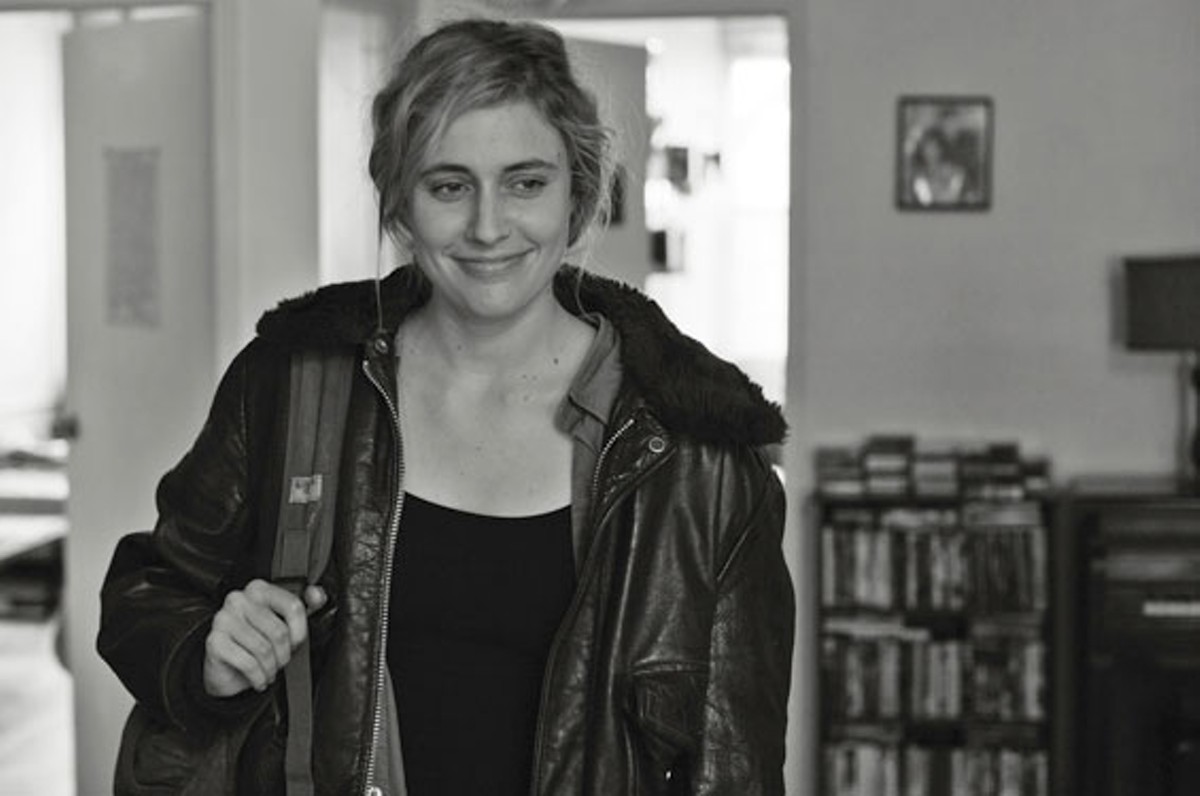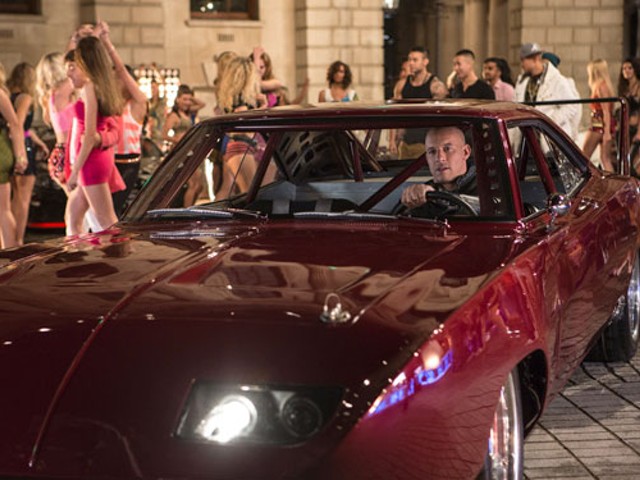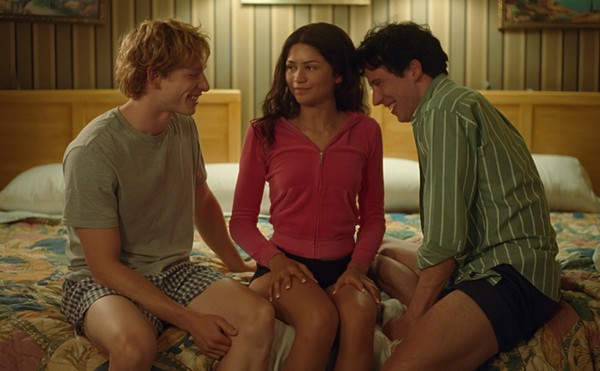New York is a cruel and beautiful place, just as 27 is a cruel and beautiful age. In Frances Ha, Greta Gerwig plays a woman who's feeling the weight of both. Frances is an aspiring dancer who has reached the age when "aspiring" really means not cutting it. Life with her best friend and roommate, Sophie (Mickey Sumner), has taken on the dull glow of old cutlery swiped from the college dining hall — "We're the lesbian couple that doesn't have sex anymore," Frances observes.
When Sophie moves out to live with her boyfriend, Frances finds herself adrift, shoehorning herself into new roommate situations that aren't quite right. She has no job and no resources: Encountering a transaction that requires a credit card, which she of course doesn't have, she blurts out, "I'm so embarrassed — I'm not a real person yet."
At what age does one become a real person? There isn't really an answer, but Frances Ha captures the spirit of those times in life when you don't know what the hell you're doing, when even the simplest things — an OK place to live, a job that pays a living wage, a companion who gets what you're going through — seem desperately out of reach. Frances Ha may be director Noah Baumbach's tenderest movie, at least among his most recent ones. Baumbach, who co-wrote the film with Gerwig, will always be a personal, if not outright autobiographical, filmmaker. But here he's found the sweet spot between being personal and taking everything personally. Margot at the Wedding and The Squid and the Whale vibrated with neuroses and hurt feelings, while Frances Ha shows a new lightness of touch.
Gerwig, maybe, has freed something in him. Shot digitally on the fly, its New York streets rendered in satiny black-and-white, Frances Ha is a patchwork of details that constitute a sort of dating manual — not one that tells you how to meet hot guys, but one that fortifies you against all the crap you have to deal with as a young person in love with a city that doesn't always love you back. Gerwig and Baumbach dot the movie with title cards, giving the exact addresses of the places where the jobless, nomadic Frances alights. There's the cozy place in Brooklyn's Clinton Hill she shares with Sophie, and the hip-kid Chinatown pad, its walls lined with vinyl LPs, where she takes an overpriced room with friends Benji and Lev (Michael Zegen and the ubiquitous Adam Driver). Frances moves from here to there without flinching, but as Gerwig plays her, there's always a cellophane layer of wistfulness behind her optimism. When you want things you can't name, how do you search for them?
In between packing up and moving on, Frances watches in dismay as Sophie burrows more deeply into life with her boyfriend, the kind of guy who wears "pre-distressed baseball hats." She goes to dinner parties with sophisticated grown-ups, where she spins out giddy soliloquies that make everyone look at her as if she had two heads. She manages to finance a 48-hour trip to Paris, savoring, in her shambling, awkward way, every fleeting minute of it. And finally, she lands a job that doesn't preclude her aspiration to dance, but perhaps nudges it in a more realistic direction.
There's one detail missing in this snapshot of a wobbly time in a young woman's life: sex. No one expects torrid love scenes from Baumbach, but it's disappointing that a movie so alive to its central character basically coughs and looks the other way whenever the subject might arise (which it barely does). In the Baumbach world, sex is an embarrassing thing to be gotten through. Does it have to be that way in the Frances world, too?
Then again, maybe it's a relief that Frances Ha isn't as assertively frank, in the "Look, ma, no shame!" way, as Girls. And this is partly Gerwig's vision, too. No other movie has allowed her to display her colors like this. Frances is a little dizzy and frequently maddening, but Gerwig is precise in delineating the character's loopiness: Her lines always hit just behind the beat, like a jazz drummer who pretends to flub yet knows exactly what's up.
In the most memorable sequence, Frances makes up an impromptu street ballet to David Bowie's "Modern Love," executing crosswalk jetés and curbside pirouettes. She's not the most delicate of dancers, but spirit counts for something, and you can almost see cartoon sparks flying from her feet. Frances may feel — as you could at 27, 47 or 67, anytime the planets align against you — that all the magic of her younger self has somehow drained away. But the hopefulness of Frances, and of Frances Ha, is a constant. There's new magic coming — it simply has to catch up with her.






